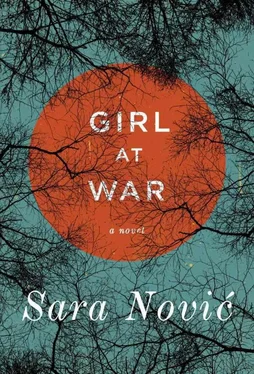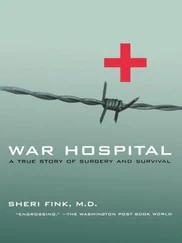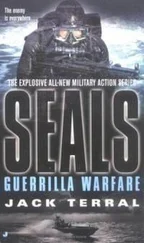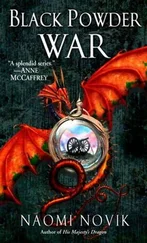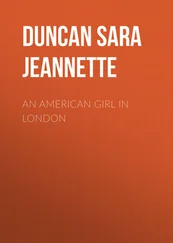It was dark and sticky and it smelled like sweat and piss. I turned my face to the side so I could breathe. Something heavy came down on my legs, but I felt far away from my body and couldn’t move. I concentrated only on the corner of my once white T-shirt as it soaked up other people’s blood. I used to think all languages were ciphers, that once you learned another’s alphabet you could convert foreign words back into your own, something recognizable. But the blood formed a pattern like a map to comprehension and I understood the differences all at once. I understood how one family could end up in the ground and another could be allowed to continue on its way, that the distinction between Serbs and Croats was much vaster than ways of writing letters. I understood the bombings, the afternoons sitting on the floor of my flat with black fabric covering the windows, the nights spent in concrete rooms. I understood that my father was not getting up. So I waited, my head light and spinning and my eyelids heavy, and came around to the stench of stale fear and the beginnings of decay.
“Don’t worry about it. We’ll get the bulldozer in from Obrovac,” the leader of the soldiers said. Already the bodies around me were cooling, beginning to take on the puttylike feel of dead flesh. My heartbeat thundered in my ears, panic coursing up my neck. But the soldiers obeyed orders, and I listened as the footsteps disappeared and the echoes of the footsteps disappeared, stayed motionless until I convinced myself I had heard them starting up their jeeps.
“Tata,” I said. I knew already, but inched closer against him anyway, nudged his shoulder with mine. “Wake up.” His eyes were clamped shut tight, as if he were counting for a round of hide-and-seek, but there was blood — at his neck, on his lips, in his ears. “Wake up!” It was impossible to take a deep breath. I tried to move, but my legs were pinned down beneath the leg of the person who’d fallen next to me, a teenage boy missing the back of his head. The weight of his body made it worse. I was sure I was suffocating and kicked wildly, trying to shake him off. My hands were still bound and I struggled to sit. Then, using the dead as stepstools, I climbed out of the ground.
I pulled my wrists out of the wire — squeezed one hand through violent and quick, then unwound the steel and freed the other. Strings of my skin clung to the barbs. Blood dripped in staircases down toward my fingertips. We hadn’t been very deep in the forest, and I followed the boot prints out to the road. The soldiers had left the felled tree but had taken the sandbags with them. They had set our cars on fire. I saw the charred skeleton of what I thought had been our car pointing like a giant arrow, and decided to continue in the direction we’d been driving, homeward.
It seemed important to keep walking, but my legs were stiff with shock and the path ahead blurred in and out of focus. I moved with excruciating slowness. Night turned to dawn though I didn’t notice the change until it had already passed, as if I’d been a sleepwalker awakened by the sunlight. The shadows were shrinking as I arrived on the outskirts of a village in the glow of a new morning.
I woke in the cobalt part of dawn. It was too early to leave but there was no chance I’d fall back to sleep now. Not wanting to wake Brian, I compelled myself to stillness for a minute or two, tried to match the rise and fall of my chest with his, but already consciousness had quickened my heartbeat and I found it difficult to keep from fidgeting. I slipped from his bed and he breathed a deep, surfacing kind of breath but did not wake up.
I returned to my dorm to change, tried to smooth the cowlick on the right that emerged with exceptional stubbornness whenever something important was scheduled. Outside the cold burned my throat but I continued on foot anyway, to kill the time. The roads were slushy, leftovers from a late-night snowplowing, slippery beneath my sneakers as I crossed the avenues and headed uptown. A few business owners were pushing up their grilles to start the day, but overall the city was stark and quiet, as empty as Manhattan gets. For long stretches of my walk I didn’t cross paths with anyone.
The lobby of the UN headquarters was not what I expected. Though I’d been attending college in New York for nearly three years, I’d managed to avoid the complex on the East River. Now, inside and waiting in a metal detector line, I felt an odd mix of anticipation and disappointment. Over the years I’d lost faith in the UN — their interventions, in my country and across the globe, were tepid at best — but I’d still assumed the compound would be impressive, decorated with vainglory. In parts it was: the four-story ceilings made me feel small; the balconies of glass and concrete curved around the entrance hall in a slick modernist wave, suggesting progressivism. In other ways, though, the interior was unremarkable. The checkered marble floor was covered in strips of stained industrial carpet. The surveillance cameras were so conspicuous I was sure they were fake, and that streamlined equipment was positioned at more clandestine angles.
The woman who’d asked me here had called over Christmas break. I was easy enough to track down; I hadn’t strayed from the people or places to which I was headed when we’d first met. She told me that after her stint in Yugo Peacekeeping she’d returned to New York and muscled her way through the bureaucracy to a liaison position. Now she was working on a new project, forming a committee to focus specifically on human rights. She told me she needed me. I told her I was at college in the city, and she said, “Remarkable,” which offended me though I knew she had a point. Then I said something cheerful like “Fridays are perfect. I won’t even have to miss class!”—something she was pleased with and I regretted before I hung up the phone.
I was early, and took a seat on a bench to wait. I gazed at the men in suits, wondering if any of them had been in the decision room or on the ground during my war. The woman — Ms. Stanfeld — had never been anything but kind, and I felt guilty about the derision running through me as I scanned the lobby for her face. Finally I caught her in my peripheral vision: dressed in a suit and high heels, her hair straightened and pulled into a bun. The last time I saw her she was in combat boots and a blue flak jacket, a tangle of wavy hair beneath her helmet. Her face was the same. It occurred to me that my appearance had likely undergone a more radical transformation — I’d grown about a foot and a half since then — so I stood and started in her direction. Before I even tried to get her attention, she called out to me.
“Ana Jurić?” It was a last name I hadn’t heard in a long time.
“Ms. Stanfeld.” I thrust my hand out prematurely and it dangled.
“Please, call me Sharon.”
“How did you recognize me?”
“The eyes.” For a moment she looked unsure whether she should say more. “And we don’t see those shoes much around here.” I snuck a peek down at the Converse high-tops I’d pulled on in a last-minute fit of groggy defiance.
I followed Sharon out of the main lobby and down a corridor. She excused herself to go to the bathroom and I wandered the hall. I poked my head into open conference rooms trussed in heavy curtains and adorned with religious-looking paintings that, upon closer inspection, were devoid of any actual religion, eagles and haloed planet earths in place of crucifixes.
Farther down the hallway I noticed a set of ornate wooden doors and a plaque declaring CHAMBERS OF THE SECURITY COUNCIL. I imagined the delegates of a decade ago convening on the other side of that wall, discussing the body count of my parents and friends and determining that yes, something would have to be done to keep up appearances, but that it would be best to stay out of such a messy conflict. I slipped my fingers around the handle and tugged gently, but the door was lighter than it looked and opened wide. A rush of air wind-tunneled into the room and a few delegates in the back row turned to look at me.
Читать дальше
